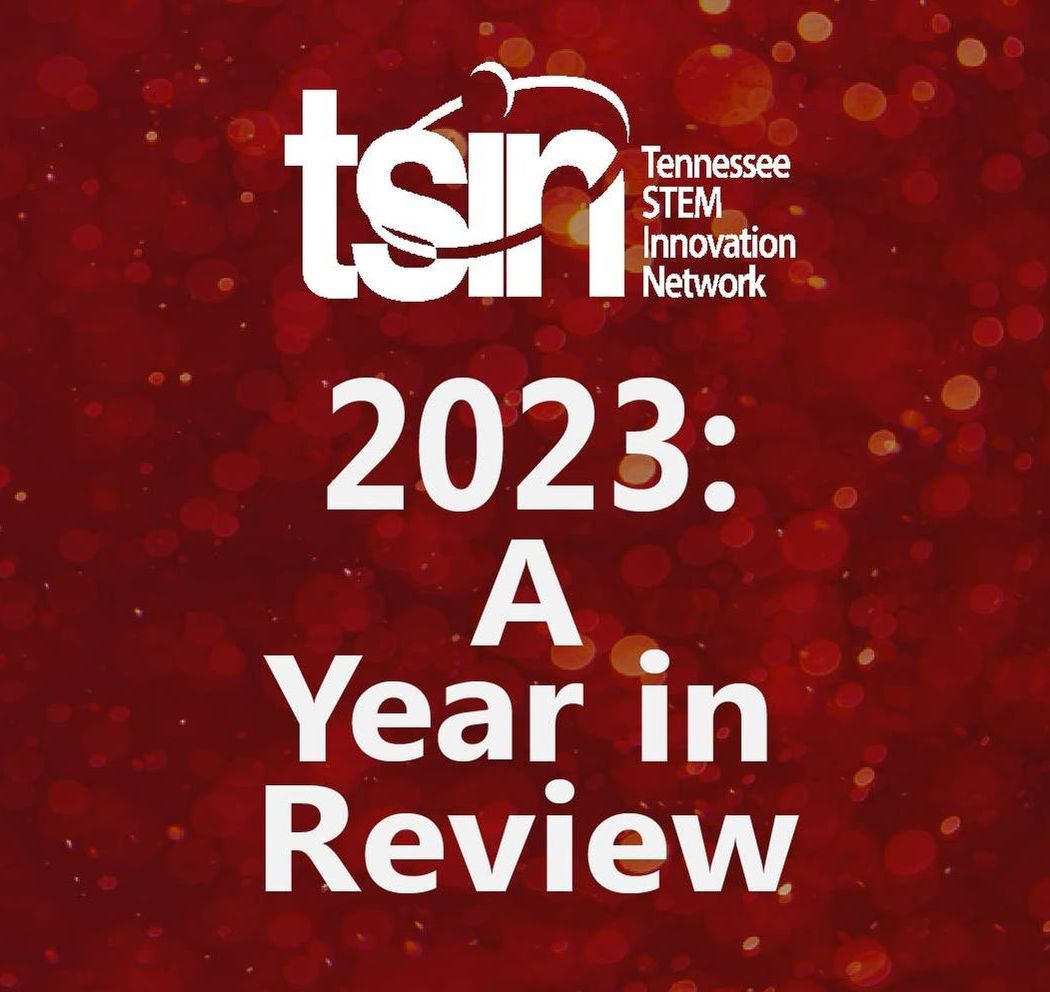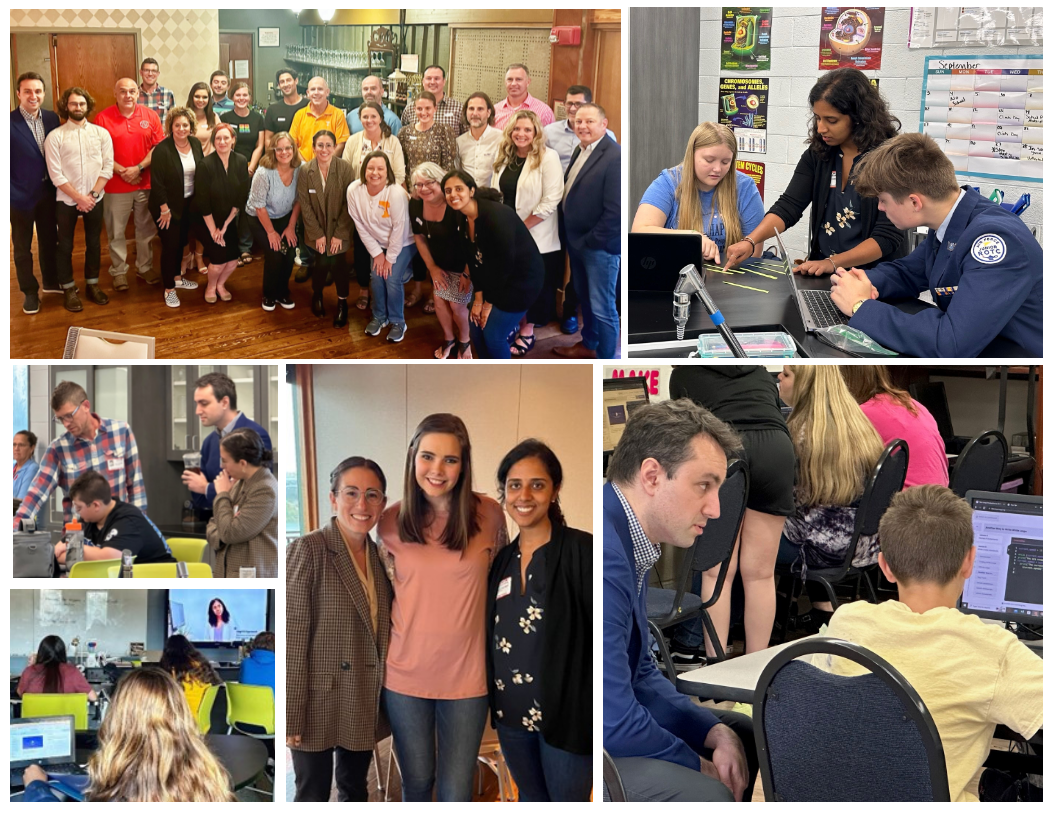



In late 2017, a groundbreaking national survey was released that aimed to reveal American girls’ thoughts, behaviors and attitudes. The report, titled “The Girls’ Index: New Insights into the Complex World of Today’s Girls,” sampled 10,678 female youths ages 10 to 18 from across the country on issues such as confidence, body image, friendships, pressure, […]Read more The post New Insights into the Complex World of Today’s Girls appeared first on Tennessee STEM Innovation Network.

In late 2017, a groundbreaking national survey was released that aimed to reveal American girls’ thoughts, behaviors and attitudes. The report, titled “The Girls’ Index: New Insights into the Complex World of Today’s Girls,” sampled 10,678 female youths ages 10 to 18 from across the country on issues such as confidence, body image, friendships, pressure, leadership, career aspirations, school, academics, technology and social media. Now, a just-released companion report, “Girls, STEM & Careers: Decoding Girls’ Futures in an Age of Social Media”, commissioned by Battelle Education, dives deeper into “The Girls’ Index” to examine girls’ perceptions of their math and science abilities, their thoughts on pursuing a career in science, technology, engineering or math, and related issues. Check out the full report here.
Research for both reports was conducted by Ruling Our eXperiences (ROX), a non-profit organization committed to equipping girls with the knowledge and skills they need to lead healthy, independent, productive and violence-free lives. For background on the original survey and insights into the new report, we contacted Lisa Hinkelman, founder and executive director of ROX:
Q: What were the major findings of “The Girls’ Index”?

Lisa Hinkelman, Executive Director of ROX
A: The findings include:
Q: The new report, “Girls, STEM & Careers: Decoding Girls’ Futures in an Age of Social Media,” is a deep dive into your bigger survey. What was the goal of this STEM survey, and what are its major findings?
A: We recognized that the data collected in “The Girls’ Index” can tell us so much about what is currently happening and what is relevant in girls’ lives today. There are several different areas that we believe warranted a secondary analysis, and STEM and careers were at the top of our list.
Our goal was to better understand the relationships among girls’ academic and career aspirations and the other factors/variables in their lives. I believe that if we can better understand the realities of girls’ lives today, we have a better chance of more effectively supporting them.
Q: To what do you attribute the drop in confidence that girls experience?
A: The drop in confidence that girls experience between fifth and ninth grades is indicative of the perceptions that they have about their STEM abilities and their intelligence as it pertains to their career aspirations.
That general drop in confidence can impact nearly every aspect of a girl’s life — and we see this play out with perceived STEM ability. There is not one clear and concise reason that girls experience a drop in confidence, although there are many theories and many variables that seem to be related to this change in self-perception.
From puberty to identity development to finding a tribe, girls’ lives are complicated. Add to this the intense expectations around beauty, body image, ensuring top academic accolades and stellar sports performance (to name just a few), and the stakes are even higher.
When we compound this with the ever-present impact of social media and the constant comparison of oneself to others, it is no wonder that girls today are little pressure cookers! When nearly every aspect of their lives is on display, and under scrutiny, there is little room for them to fail. This avoidance of failure results in fewer girls feeling that they can take risks or take on new challenges.
Q: The survey also found that girls’ perceptions of their intelligence drops as they get older, with 46 percent of high schoolers thinking they aren’t smart enough to land their dream job, up from 23 percent of fifth-graders. What do you think fosters this self-doubt?
A: As girls get older, they start to understand more about the world of work and begin to consider where they fit. Previous research on the career development of adolescents found that during the critical middle school years, girls begin to lose interest in specific careers based upon the fact that they don’t see other women — and women of their same race and ethnicity — pursuing these occupations.
More recent discourse on this subject expands this explanation and also asserts that girls need exposure to STEM careers, activities and mentors that will spark their interests and sustain their engagement.
I think what is missing from this conversation is the discussion about how individuals come to happiness and fulfillment in a particular occupation. Those who are most satisfied in their careers tend to be the individuals who know themselves well, have insights into themselves as well as their values, aptitudes and interests.
When what I care about can align with what I am good at and what I am interested in, what an amazing trifecta that is! However, there are very few career development conversations or activities that happen with any regularity for today’s students.
Girls need to be made aware of their options and decisions, understand themselves and their interests and values, know what is required to pursue a particular career path, and then take action toward the goal. We need to help girls understand the ways that careers in STEM are creative, innovative, helpful, collaborative and potentially life-changing.
We are not talking exclusively about a lonely scientist in a lab (although that, too, is an option). This requires more than simple exposure; it requires that girls can begin to develop some interpersonal insights into what they enjoy, what they care about and what they are good at.
Q: The survey found that a girl’s interest in pursuing a career in math and/or science is greater if she takes part in school or youth activities, or if she has a paying job. Why do you think that is?
A: When girls are connected to positive people, structured activities, supportive teams and adequate support systems, they fare better personally, interpersonally and academically.
Each of these connections provides the opportunity to build specific skills: friendship, communication, negotiation, dealing with conflict and competition, handling winning and losing, developing responsibility, etc. These are life skills that are also critical life competencies. When girls have the opportunity to develop success in various domains, the efficacy that they develop can often been observed in other domains.
Q: Overall, 73 percent of girls surveyed believe they are good at math and/or science, but only 46 percent of Hispanic girls agreed with that finding, and girls who attend high-poverty schools are 10 percent less likely to agree. What do you think are the reasons for these lower numbers?
A: We know that girls of color dis-proportionally attend high-poverty schools, and that high-poverty schools tend to have fewer resources. In turn, girls get less access and exposure to the STEM areas.
High-tech robotics labs, summer STEM camps and job shadowing experiences are not always accessible; therefore, I think it is especially important that our efforts to engage, expose and empower girls ensure that we create opportunities for girls who otherwise would not have access to the activities, experiences and people that could help cultivate their STEM interest.
They aren’t given an even playing field, so it is our responsibility as educators and people who care about this work to focus our efforts and address the inequity.
The post New Insights into the Complex World of Today’s Girls appeared first on Tennessee STEM Innovation Network.



